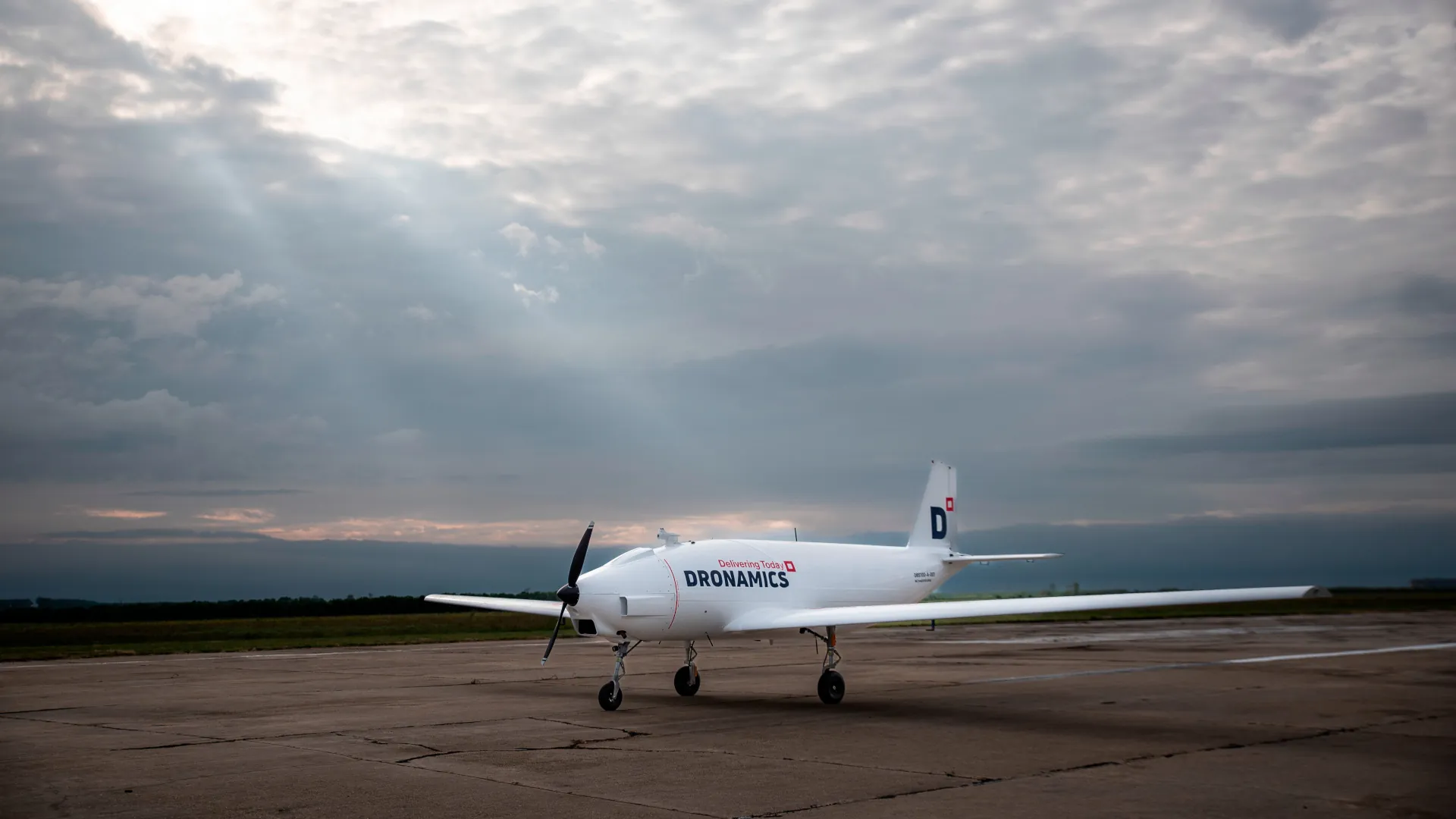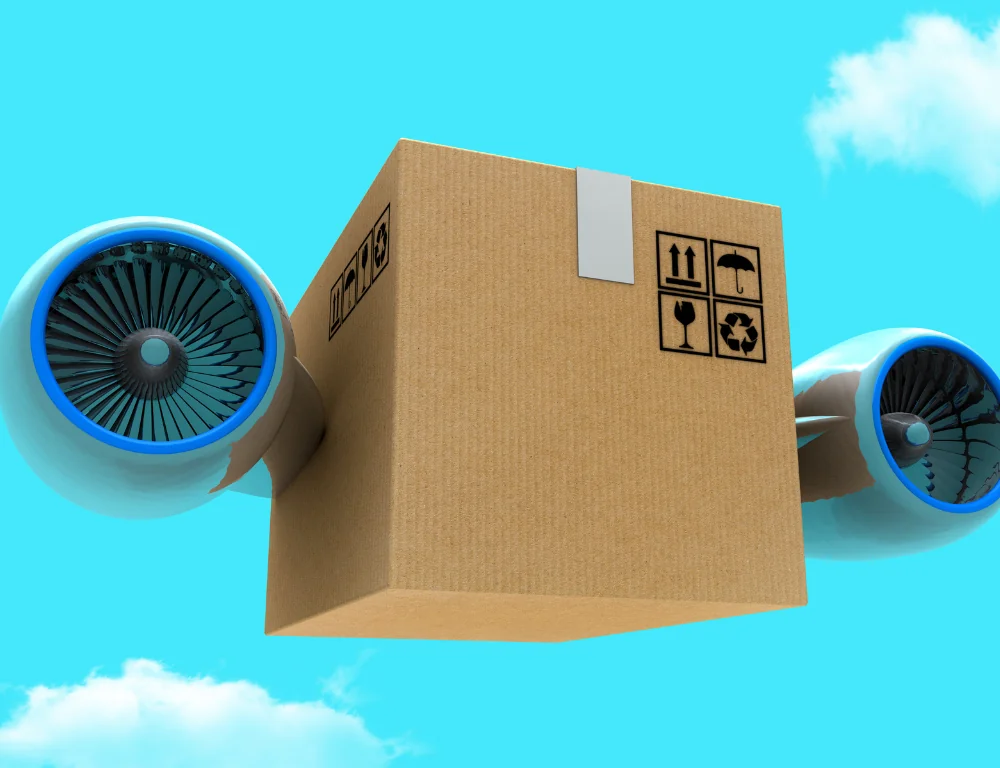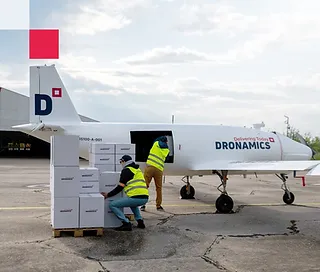Dronamics: Revolutionizing the Logistics Industry with Drone Technology
Dronamics: Revolutionizing the Logistics Industry with Drone Technology
Expedited and same deliveries are becoming the standard for delivery services, meaning we expect our packages to come to our doorsteps in as few hours. Yet the concept doesn’t apply to larger freights. The logistics industry is struggling to keep up with increasing demands as customers worldwide want their items delivered as soon as possible, no matter how far away they are. How can logistic companies satisfy customer needs while reducing the supply chain’s slow waiting times?
This is where Dronamics comes in.
Dronamics is a Bulgarian drone technology company. Founded in 2014 by co-founders Svilen and Konstantin Rangelov, the company aims to reduce time during point-to-point delivery of truck-sized cargo loads by using air freight drones capable of making same-day deliveries faster and cheaper than traditional freight airlines.
Now, their goal is coming to life. Its first drone has successfully passed EU safety regulations and is ready to fly. Commercial operations will begin in early 2025 in Greece, with plans to expand past the Mediterranean into the rest of Europe, Australia, and, by the end of 2025, the United States. But how is Dromanics’ new type of cargo drone affecting the logistics industry when it hasn’t even flown its first official delivery?
The Black Swan

For the last decade, Dronamics has been gathering some of the world’s greatest aviation and aerospace experts to work on bringing its vision together. After testing multiple prototypes, the company’s inaugural drone will launch the world’s first freight drone airline next year. Dubbed “Black Swan,” it boasts some surprising heft for a smaller aircraft:
- Has a wingspan of 16 m (52 ft) and a height of 4 m (13 ft).>
- Can carry around 350 kg (770 lbs) over 2,500 km (1550 miles).
- Speeds up to 200 kmh (125 mph) at 20,000 ft in the air.
- Has a 140-horsepower, four-cylinder engine, running on regular or biofuel but moving to hydrogen-based fuel in the future.
What the drone doesn’t have is a cockpit. The Black Swan is fully remote-controlled; two pilots will control it from its takeoff location and two other pilots at its destination. It can fly autonomously or semi-autonomously; however, during its initial runs, it will be monitored and piloted by humans for safety control. The best part is that it can be controlled inside one of Dronamics’ vans, not just inside a building. You can make any place a takeoff/landing port if you have a 400 m (¼ of a mile) long runway (which is small compared to the traditional airport’s 8000 to 13,000 ft. long runways).

The Black Swan’s cargo hold can accommodate the freight of a small cargo van and is temperature-controlled, making it ideal for perishable items. Its mobile operations and minimal infrastructure allow it to serve multiple industries, including pharmaceuticals, engineering, mining, and e-commerce, without stepping onto an actual airport. The Black Swan could make the current cargo airplane irrelevant if all goes well.
What Came Before Dronamics?
The Black Swan could be a breakthrough for air freight as the world’s first drone-led cargo airline. Despite this innovation, using drones in the logistics industry is not new. In fact, several companies have started employing drones for parcel deliveries in recent years, especially during the COVID-19 pandemic. Some of the most notable services include:
Zipline: Currently the world’s largest drone delivery service, making over 1 million deliveries as of April 2024.
Wing: A subsidiary of Google’s parent company, Alphabet Inc., Uses its drones to deliver groceries for Walmart in five locations.
Prime Air: Amazon’s drone delivery service. Located only in two locations in the U.S., with plans to expand into the UK and Italy in late 2024.
Manna Aero: Based in Ireland, it became the first European drone delivery service to receive a European-wide license to operate its drones.
DHL and UPS: Both couriers have drone delivery options alongside their usual mail and package delivery services.

But those drone services all cater to parcel deliveries. They can only handle small loads and carry them over short distances, usually over a single town or city at a time. Dronamics is different because it aims for bigger payloads. Its drones will be capable of transporting an entire cargo load in the air, including over water, and delivering its freight on the same day. While its freight-van-sized storage area is smaller than the typical freight truck, the drone may expand its cargo space over time should its operation succeed. This could be the first step in changing the way logistics is handled.
How Dronamics Changes the Logistics Game
Until now, air cargo airlines have had to shove multiple amounts of cargo for many customers into a single aircraft. The planes had to load their freight from trucks, fly them from one location to a central (but not optimal) destination, and then land and load everything into new trucks to be transported to a warehouse or fulfillment center.
This process is part of what’s known as the middle mile, the second step in the supply chain, sandwiched between the first mile (from manufacturer to transport) and the last mile (from warehouse to customer). Logistics has always been at war with the timeliness of the supply chain. Customers want their items fast, but getting them from the origin to the consumer can be agonizingly long and stressful.

Dronamics offers the Black Swan’s entire cargo capacity to individual customers. The drone can land in an optimal location with a 400 m runway, including remote areas like farm fields and abandoned factories. This reduces delivery times while connecting isolated, ill-serviced locations to bigger areas.
It also reduces the need for warehousing since the drones will land closer to their customers than traditional cargo aircraft. Companies running their own fleet of freight trucks or individual carriers paid for by a business can just take their freight off the drone and go straight to the customer.
The Future of Drone Deliveries
The logistics industry should be closely watching Dronamics’ upcoming commercial debut. The concept is intriguing, and so is the potential to revolutionize freight delivery as we know it. If successful, Dronamics’ Black Swan will be able to reach millions of people who were previously unable to utilize freight carriers due to location and cost. For millions of people reliant on same-day and expedited deliveries, this could get their orders at their door faster than before. For logistics companies and freight carriers, it could be a transformative solution to a long-time issue. All we can do now is wait for 2025 and see if Dronamics’ Greece operations prove us correct.

